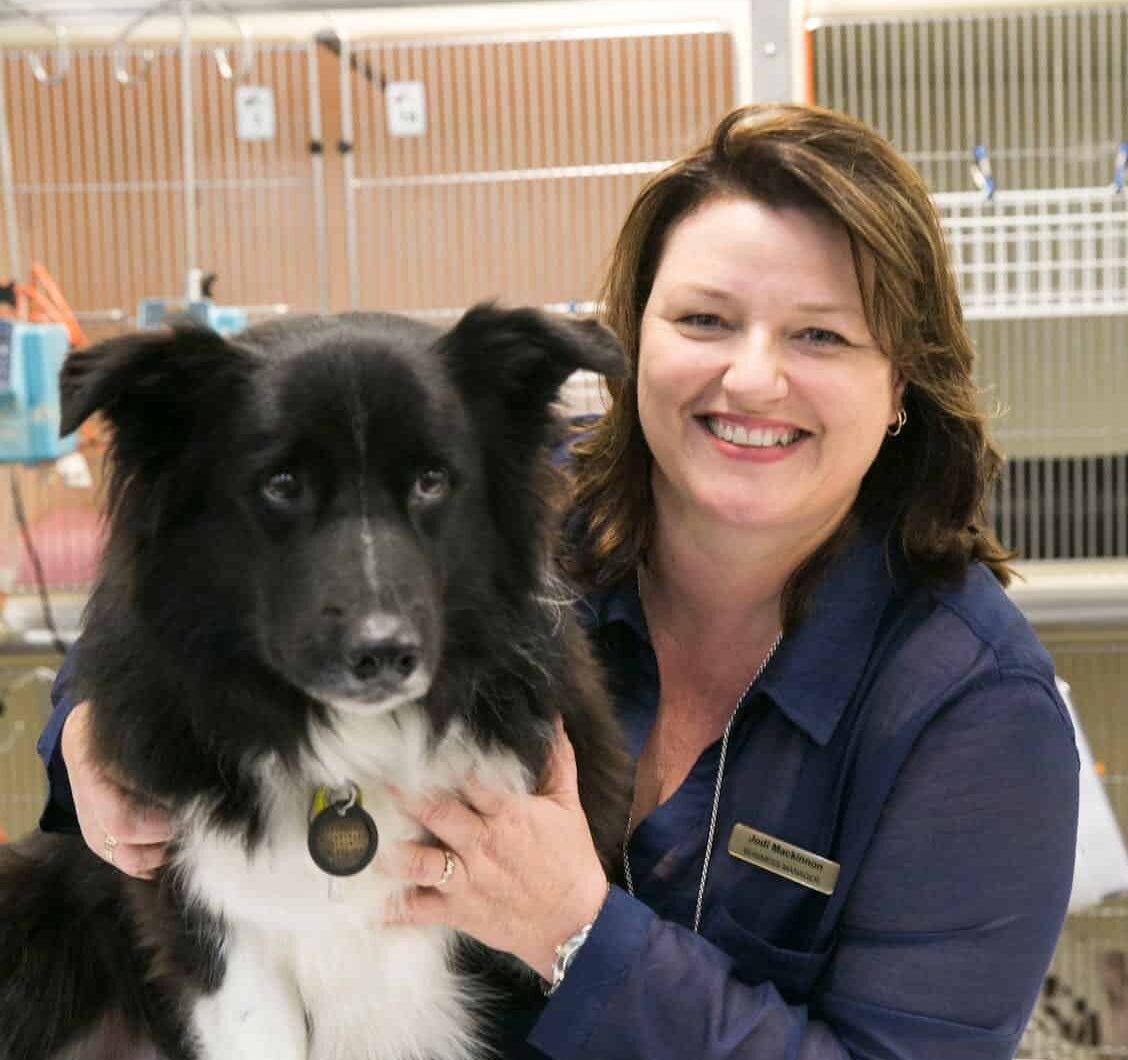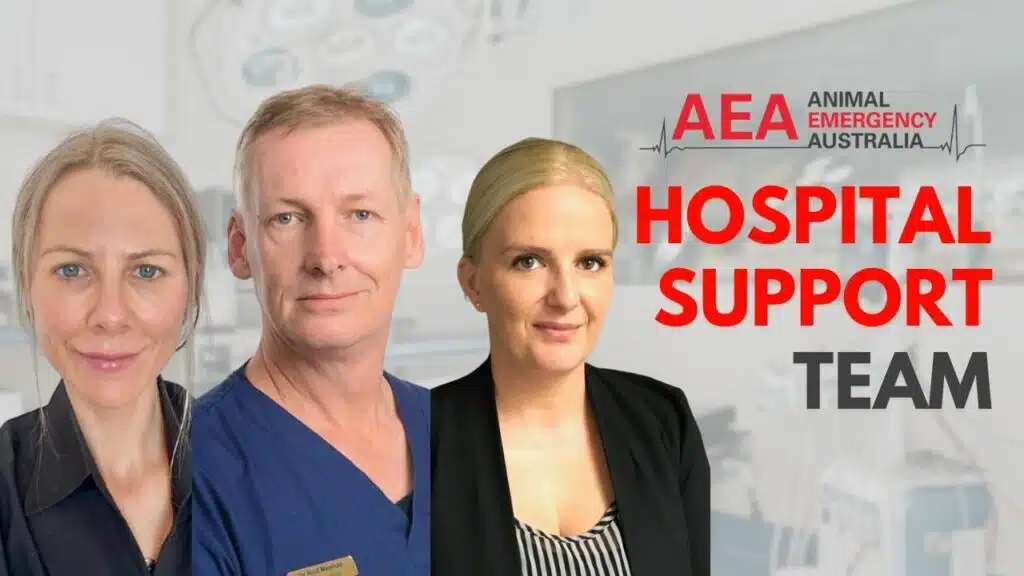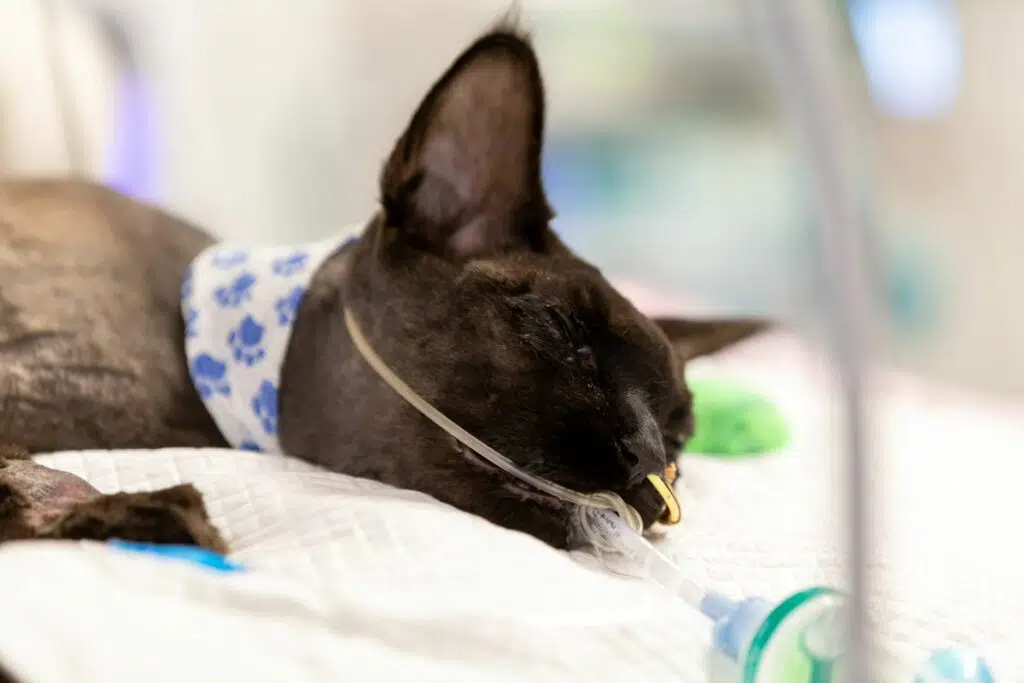Leadership is an essential aspect of any profession, especially within veterinary emergency and critical care, where teams of highly-skilled professionals are required to work together to effectively manage critical cases. The veterinary profession is also a unique field that requires a combination of technical knowledge, compassion, and veterinary leadership skills. Aspiring leaders in our profession must possess a deep commitment to their work, a willingness to learn and adapt, and the ability to motivate and inspire others.
But veterinary leadership isn’t just about being a great vet, nurse, or practice manager, it’s also about having the ability to make amazing changes and differences in your world, your life, and your career. That’s why we spoke with Jodi Mackinnon, co-CEO of Animal Emergency Australia, about her insights on leadership in the veterinary profession.
How did you find yourself in a veterinary leadership role?
Jodi’s career path has been far from what one would typically imagine in the veterinary profession. Committing to two roles in 30 years, Jodi began as a veterinary nurse before progressing to practice manager. But rather than actively seeking a leadership position, Jodi explains: “I saw a need and filled it, without really thinking about the role itself until later. There was a gap where veterinary professionals needed somebody to step up for them. Someone who could say, “How are we gonna fix this?”
Initially, the company (now Animal Emergency Australia) didn’t even know they needed someone in such a leadership position. Taking a proactive approach and creating an opportunity to be of value to the business, Jodi put herself forward. And when asked about ambition, Jodi admits that she doesn’t think she’s an ambitious person, and she actively resisted being a CEO for a long time.
“I can’t be a CEO – I don’t have an MBA. You’re crazy for even suggesting it!” But she found that she could break the mould because of her dedication to people and to the profession. Rather than focusing on pursuing leadership roles, the biggest impact was instead to focus on doing her role well. Being successful in your role and achieving balance, well-being, and success in your personal and professional life has the ability to create a pathway towards leadership.
What’s your view on leadership in the veterinary profession?
“Leadership in the veterinary profession is about working hard and caring about what you do and never settling. I was at a dinner last year and it was when I was considering my current role. There was a vet nurse that became a practice manager who sat down at the table across from me and I heard her say, “I’ve been a vet nurse, I’m now a practice manager. There’s nothing else for me in this industry.”
“And it really settled with me to think: How can I change that? You know, how can I change that across the board? While I probably can’t change it for that one person, how can I change it across the entire profession to make a difference?”
Jodi’s view on leadership in the veterinary profession is about working hard, caring about what you do, and never settling. She emphasises that anyone of any background and any training has the potential to pursue their career aspirations for leadership so long as they possess the dedication, perseverance, and willingness to take risks.

“Pursuing your career aspirations doesn’t actually matter whether you are a man, whether you are a woman, whether you have an MBA or you don’t have an MBA.
You still have the ability to make amazing changes and differences in your world, in your life, in your career, in everything that you do.”
What are the key traits of leaders in the veterinary profession?
One of the key traits of successful leaders in the veterinary profession is a strong work ethic. To succeed in this field, it’s essential to have a genuine passion not just for animals and having the desire to make a difference in their lives, but for the veterinary professionals who care for them. This means working tirelessly to provide the highest quality care for both pets and the veterinary professionals dedicated to their care. This also involves staying up to date with the latest research and best practices, and continually striving to improve one’s skills and knowledge.
In addition to technical expertise, aspiring leaders in the veterinary profession must also possess strong leadership skills. This means the ability to effectively communicate with colleagues, clients, and other stakeholders, as well as the ability to build and maintain relationships with key partners in the industry. Leaders must also be able to make tough decisions, manage teams effectively, and inspire others to perform at their best.

Jodi Mackinnon with Dr Penny Seet, Principal Veterinarian of PVE, preparing for the upcoming PVE Cannington veterinary hospital.
Adaptability and flexibility is also crucial, as we can continually learn by doing better. In an industry that is constantly and rapidly evolving, leaders must be able to adapt to new technologies, research, and best practices as they emerge. This means being open to new ideas, willing to learn from others, and always looking for ways to improve one’s own practices.
Veterinary Leadership in Summary
If you’re looking to advance your career and become a leader in the veterinary profession, take inspiration from Jodi’s story and believe in yourself and your skills. Veterinary leadership can present itself in many different ways beyond the traditional roles within a clinic. Instead, you may find yourself discovering a need where veterinary professionals need someone to step up and make changes, and offer your help.
Ultimately, leadership in the veterinary profession requires a combination of hard work, dedication, and a willingness to learn and grow. By staying committed to your work, building strong relationships with colleagues and clients, and continually adapting to new challenges and opportunities, aspiring veterinary leaders can make a real difference in the lives of animals and their owners, while also advancing your own career in the process.




